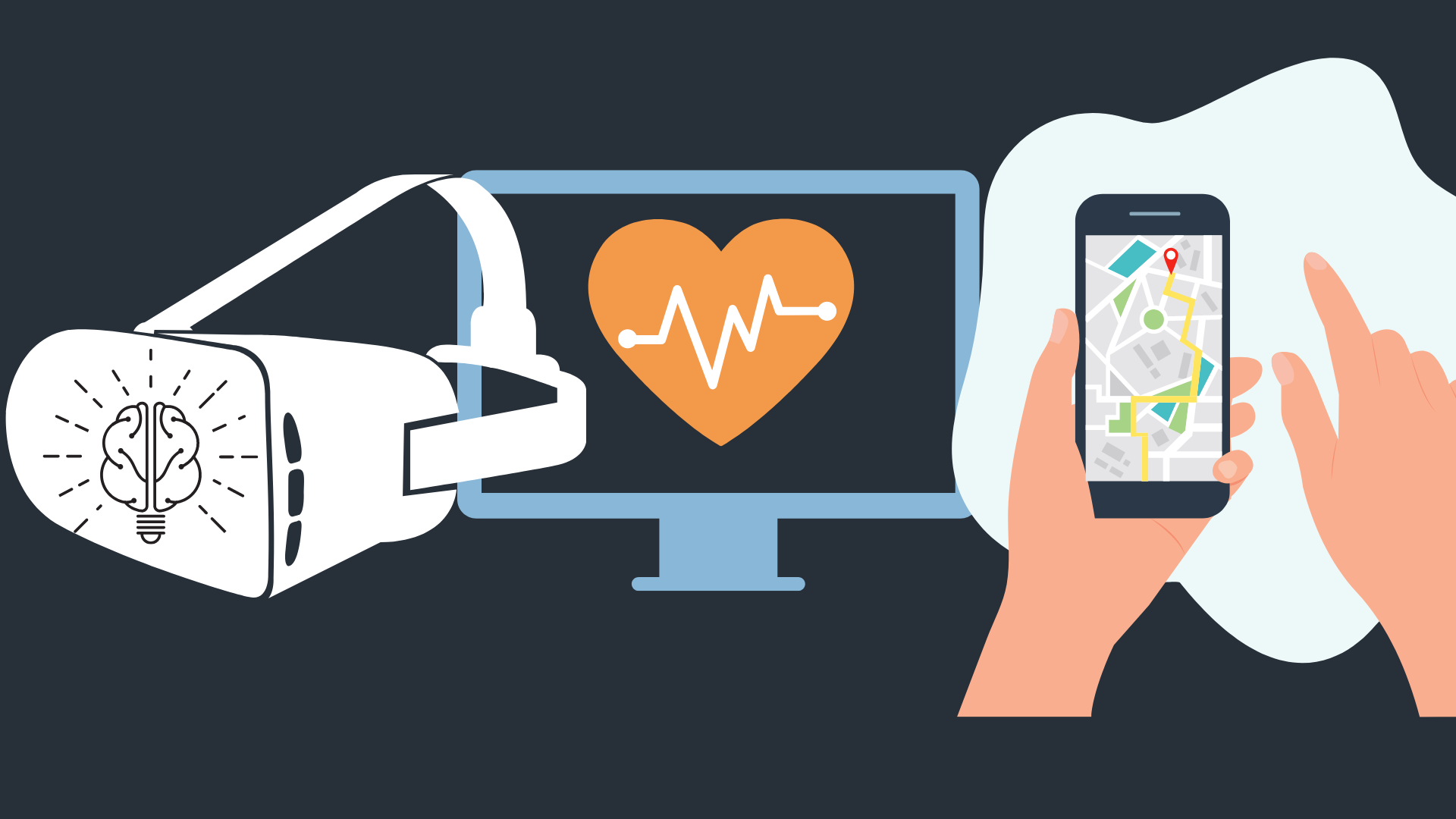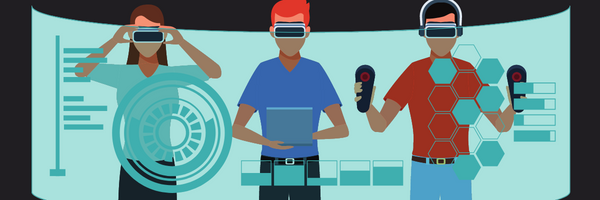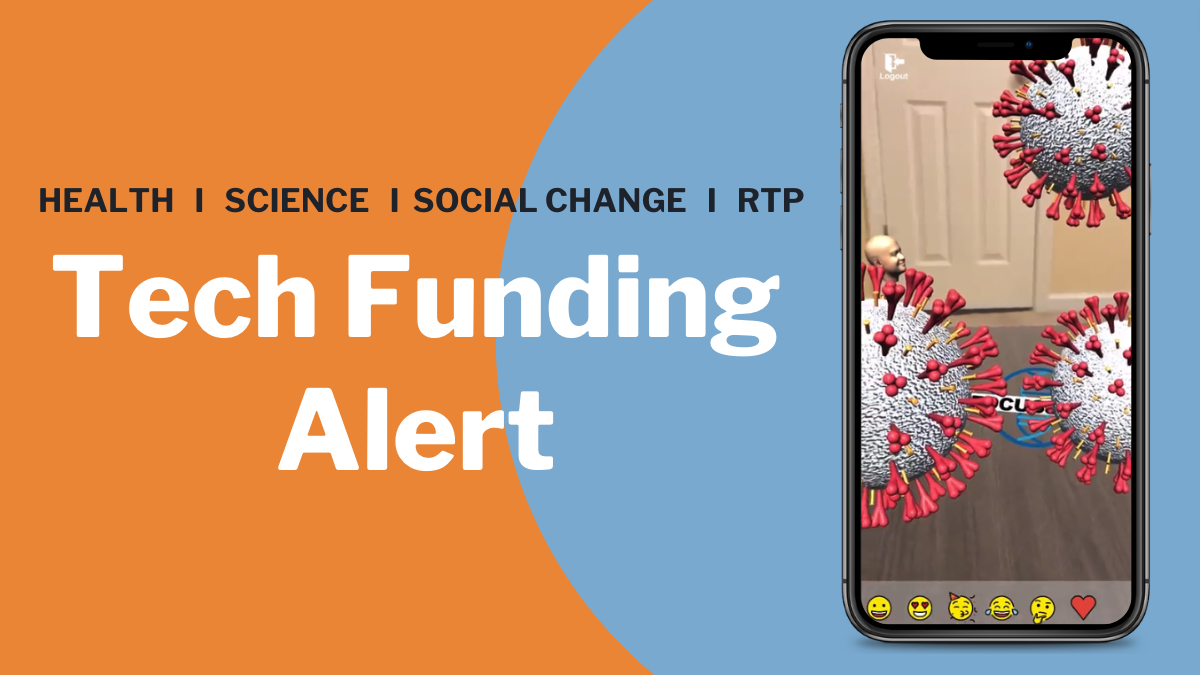Dear Readers,
Health & Science Tech Digest: April 2023
It’s incredible to watch the power of technology reshaping medicine, from a virtual reality program being recognized as a reimbursable healthcare service, to AI-powered eyeglasses that use sonar to detect speech. These pioneering days make the invention of digital therapeutics quite exciting for us. For example, did you know that fetal images generated in virtual reality significantly increase maternal interaction with their unborn child? Or that a simple meditation app can improve surgical performance for orthopedic residents? These groundbreaking technologies are changing the game and perhaps signaling a shift towards non-pharmaceutical ways to improve health and our lives. Dive in and enjoy April’s Health and Science Tech Digest!
Sincerely,
DeAnne Canieso, PhD
Communications Manager
Get Our Health & Science Tech Digest Sent to you Monthly
Subscribe to our Health & Science Tech Huddle newsletter to get this curated list of relevant news, research, and resources sent to your inbox each month. Plus get additional resources designed to empower health & science innovators.
News
CMS Issues First HCPC Code, Creating a Reimbursement Pathway for Therapeutic Virtual Reality
The Centers for Medicare & Medicaid Services (CMS) issued a new Healthcare Common Procedure Coding System (HCPCS) Level II code specifically for a virtual reality (VR) program. Starting April 1, 2023, the newly established HCPCs code took effect for a VR device and associated software called RelieVRx. This marks the first time that CMS has recognized a virtual reality therapy as a distinct and reimbursable healthcare service.
RelieVRx is the first FDA-authorized in-home VR treatment clinically proven to significantly reduce chronic lower back pain. This is a remarkable step forward for the field of virtual reality, primarily because the therapeutic benefits of the technology is now being recognized by a major healthcare agency, which will likely increase access and availability of VR therapeutics as a treatment option for patients in the future.
Meanwhile, VR applications continue to show promise in treating a variety of other conditions, such as anxiety, depression, and post-traumatic stress disorder (PTSD). By providing a billing code for VR therapies, healthcare providers can better integrate this treatment option and make it more widely available to patients. Overall, the issuance of a HCPCS code for therapeutic VR is an important trajectory in healthcare, as it is the start of realizing the value and potential of this non-pharmaceutical tech in treating a range of conditions. It may also encourage further research and development in the field, leading to more effective and accessible VR therapy options for patients.
Artificial Intelligence Eyeglasses Read Speech with Novel Acoustic Technology
Cornell University researchers recently developed eyeglasses with an acoustic sensing system that can read silent speech! The Smart Computer Interfaces for Future Interactions (SciFi) Lab built EchoSpeech glasses, which can recognize 31 unvocalized commands of a user based solely on lip and mouth movements, and deliver the commands to a smartphone.
The novel wearable is outfitted with microphones and small speakers and utilizes AI-powered sonar technology that sends and receives sound waves across the face. This allows for the sensing of lip and mouth movements, while a deep learning algorithm is applied to recognize the speech commands with 95% accuracy. Researchers see the potential application for patients who are unable to vocalize sound, and for those who are in places where speech is inconvenient or inappropriate, like a library.
The use of sonar tech is intriguing because it signals a shift from the conventional use of miniature video cameras typically implemented to detect facial movements, offering a potentially better alternative for gathering data. Moreover, acoustic data is smaller than an image or video, thus requiring less bandwidth to process. Additionally, there are privacy concerns surrounding the use of cameras in wearables for users and the people they interact with. Since the data from the glasses are processed locally on a smartphone, the user has a better level of control on any privacy-sensitive information than if it were uploaded on the cloud.
Could acoustic tech soon replace image capture?
Research Roundup
Effects of Fetal Images Produced in Virtual Reality on Maternal-Fetal Attachment, A Randomized Controlled Trial
The use of fetal ultrasonography to view a fetus through ultrasound images has previously been shown to enhance Maternal-fetal attachment (MFA). This study investigated the effect of fetal images that were generated in virtual reality, as well as a prenatal coaching mobile app, and their impact on MFA and depressive symptoms.
Participants were randomly assigned to either a mobile app-only group or an app plus VR group. The prenatal-coaching mobile app provided health behavior recommendations for the pregnant women according to gestational age, provided feedback on entered data for maternal weight, blood pressure, and glucose levels, and included a private diary service for fetal ultrasound images. All participants completed questionnaires to assess MFA, depressive symptoms, and other basic medical information before and after the interventions.
The results showed that most of the assessments were comparable between the two groups, but the mean score for assessing interaction with the fetus was significantly higher in the VR group than the control group. In essence, the use of a prenatal-coaching mobile app with fetal images generated in VR significantly increased maternal interaction with the fetus.
This finding is intriguing as it provides a new approach to enhance MFA and improve maternal and fetal health outcomes. Additionally, the study highlights the potential benefits of integrating virtual reality in maternal-child health. Further studies could investigate the long-term effects of VR-generated fetal images on MFA as well as postpartum outcomes. Read the Research
Clinical Study of a Wearable Remote Rehabilitation Training System for Patients With Stroke
Stroke is a significant cause of disability and the third leading cause of death worldwide. For those discharged from the hospital after a stroke, it is a challenge to provide effective rehabilitation training without the guidance of a physician. To address this issue, researchers developed a remote intelligent rehabilitation training system, with wearable devices including training gloves, and upper and lower limb sensors. The system also incorporated interactive training games on a PC that are based on daily life scenarios.
Data from the wearables were analyzed by the physician and used to guide the patient further through their rehabilitation. Participants in the study were scored according to the Fugl-Meyer Motor Function Rating scale at baseline and 21 days. The results showed that the total mean Fugl-Meyer score improved significantly more in the wearables group than in the control group who received traditional occupational therapy.
Based on these findings, researchers surmise that the remote rehabilitation training system can possibly replace routine clinical occupational therapy training. Home-based rehabilitation training has been identified as a promising avenue to meet the rehabilitation needs of stroke patients, especially for those discharged from hospitals who face transportation or physical mobility challenges. Thus, remote training systems applied in healthcare are promising solutions because rehabilitative care can be delivered in the comfort of a patient’s home. Read the Research
Meditation Using a Mobile App Improves Surgery Trainee Performance
The clinical relevance of this study suggests that a mobile app-based meditation practice can be incorporated into arthroscopy curriculums to improve simulation-based arthroscopy surgery performance and the mental health of orthopedic residents without any previous experience performing the procedure.
A number of challenges impact the ability for residents to perform arthroscopies including distractions in the operating room and surgical skills retention. The results of the study showed that participants who practiced app-based meditation had statistically better simulated arthroscopy performance than those who did not practice meditation. The group that practiced meditation for 10 days had less skills deterioration than the group of residents who did not do meditation at all. The study concluded that short-term meditation can enhance performance and reduce skills deterioration of orthopedic residents with no arthroscopy hands-on experience.
The significant outcomes demonstrate the benefits of mindfulness meditation practices into surgical education and training, particularly for surgeons who are prone to stress and burnout. With the convenience a mobile app provides, meditation practices can be delivered at any time for surgeons pre and post-op. However, since the study measured the effects of meditation in a simulation-based surgical training, I am curious to see more research testing a meditation app on non-simulated surgical performance. Read the Research
Do you have thoughts about the topics in our digest? Feel free to contact me with your impression and ideas, and be a part of the conversation in our next Health & Science Tech Digest.
Get Our Health & Science Tech Digest Sent to you Monthly
Subscribe to our Health & Science Tech Huddle newsletter to get this curated list of relevant news, research, and resources sent to your inbox each month. Plus get additional resources designed to empower health & science innovators.





